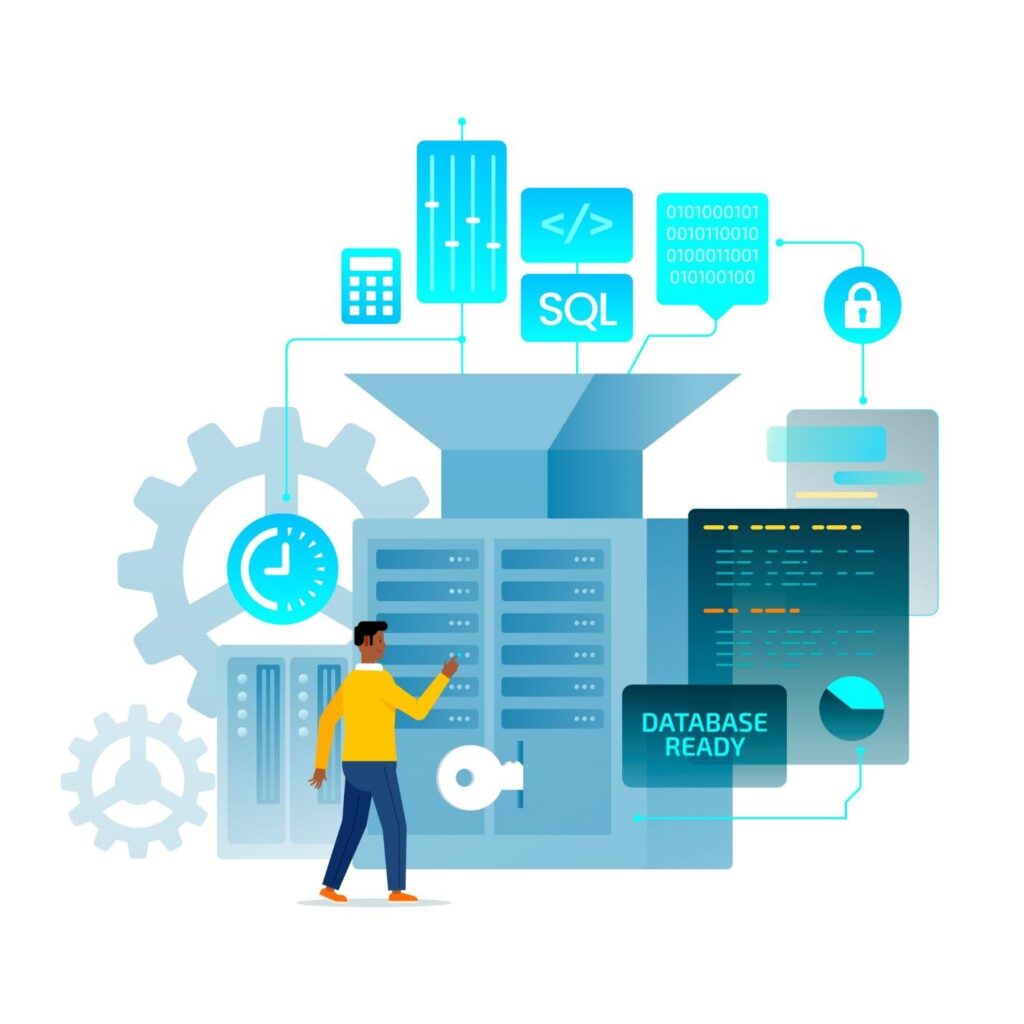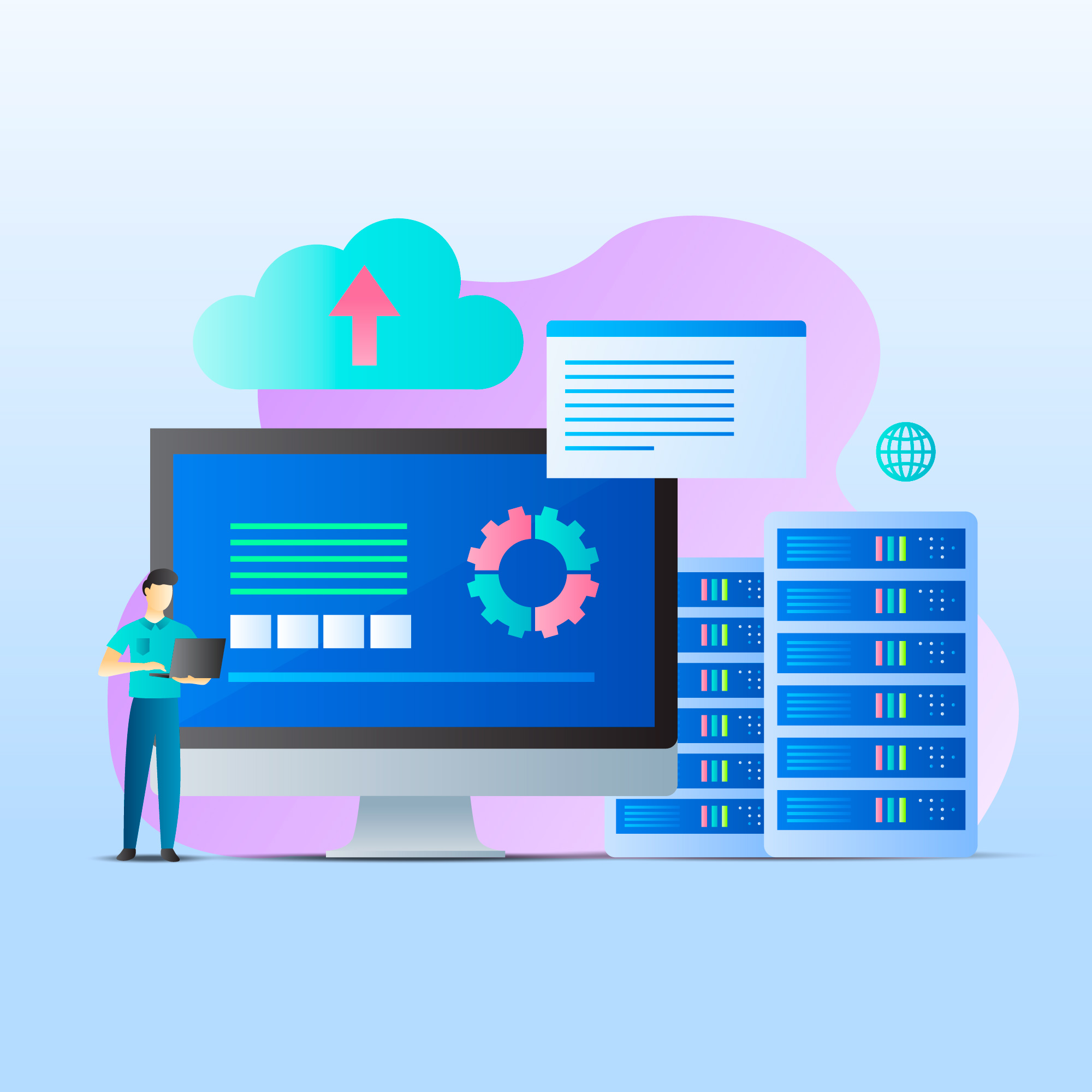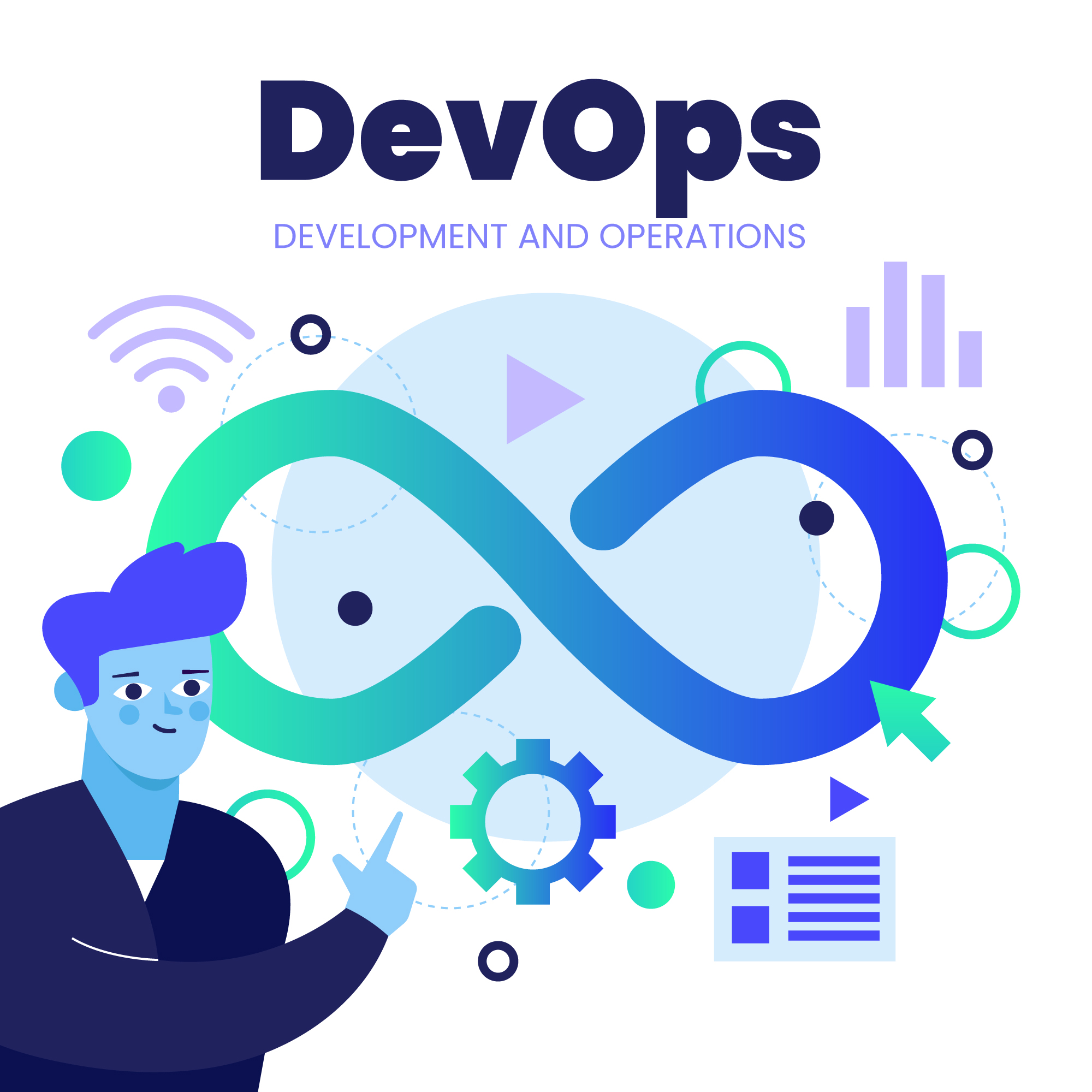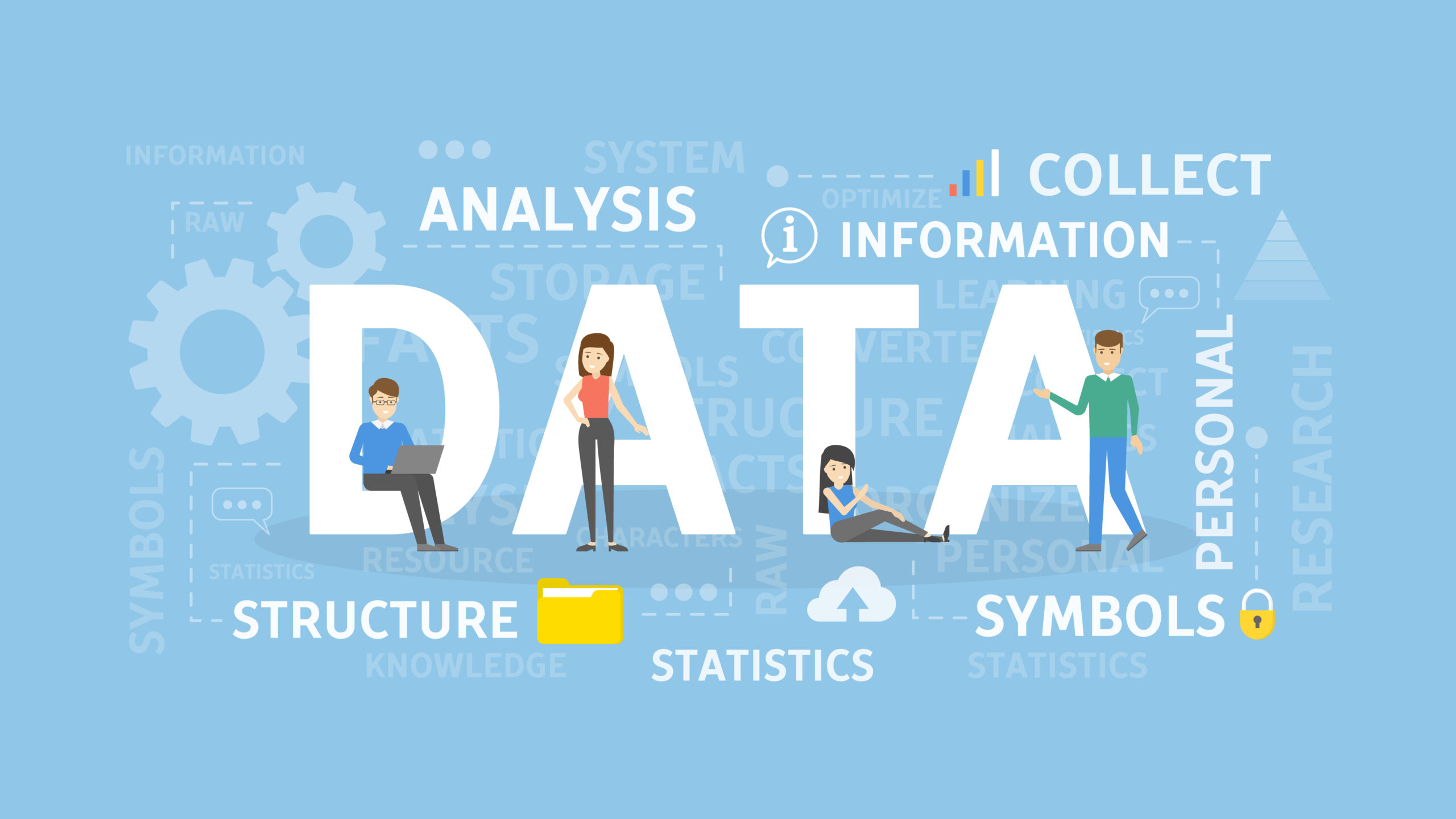If you’ve ever wonder, “What is database management?”, you’re in the right place. In this guide, we’ll cover what database management means, why it matters, what a database management system (DBMS) is, how they differ, common questions from users, and how a partner like Tambena Consulting can help your business not just understand but succeed with them.
Why is Database Management Necessary?
Many businesses collect ever-growing piles of data like customer records, transactions, sensor data, and inventory logs, yet struggle to make sense of it all. This causes the data to become a liability: duplicate records, inconsistencies, security nightmares, slow queries, and poor reporting. Without effective data governance and systems, decision-making is hampered, and opportunities are lost.
Imagine this: you launch a new product, but your customer records are spread across spreadsheets, legacy systems, and cloud apps. You realize you don’t really know which customers ordered what, which region is performing best, or even how to tie online behavior to sales. Meanwhile, you worry about data breaches, compliance, and whether your database can scale as you grow. All of this is because you don’t have a unified approach to what database management is and the tools behind it.
Sound familiar? If so, you’re certainly not alone; many teams discover too late that data problems are really business problems in disguise.
Understanding “What Is Database Management”
At its core, database management is the process of defining, organizing, storing, retrieving, and otherwise managing the data that exists in a database. In other words: managing your data assets so they are secure, accurate, available, and useful.
Key aspects include:
- Data definition (how you model the data)
- Data storage and retrieval (how it is physically/virtually stored and accessed)
- Data security, integrity and performance
- Back up, recovery, scalability, governance
When you understand what database management is, you recognize that it’s not just about installing software; it’s about the ongoing discipline and infrastructure around your data.
Why Database Management Matters?
If the process above sounds broad, the term what is a database management system (DBMS) refers to the software tools that enable all of that to happen. A DBMS is the engine behind the scenes.
In plain terms: a DBMS lets you create, define, query, update and manage databases. It controls how data is stored, how multiple users access it, how you enforce security and consistency. For example: you might use a relational DBMS like MySQL or PostgreSQL, or a NoSQL system like MongoDB.
So, when someone asks “what is a database management system?”, the answer is: software that supports your data-management processes.
Why both matter – linking the process and the tool
You can think of it like this: you can have a great recipe (database management practices), but without a good stove and utensils (DBMS), you’ll struggle to cook it. Equally, owning a top-tier DBMS without good data practices is like having a race car and trying to drive it through a swamp.
Some of the benefits you get with effective database management + a strong DBMS include:
- Reduced redundancy and better data consistency.
- Centralised access and improved decision-making.
- Stronger security, better backup & recovery, better performance.
Why This Matters for Your Business
- Efficiency: When you know what database management means and pick the right DBMS, your team spends less time dealing with messy spreadsheets, duplicate records, and slow queries.
- Scalability: Growing data volumes? Complex queries? A good system and good practices let you scale confidently.
- Decision-making: Clean, accessible data means timely insights, smarter decisions, competitive advantage.
- Risk management: Regulatory compliance, data privacy, security breaches a good data infrastructure lowers risks.
- Cost management: Avoiding legacy chaos, reducing maintenance overhead, and consolidating systems saves money in the long run.
How Tambena Consulting Can Help

Here’s where Tambena Consulting comes in. We specialize in helping businesses define what database management means for them and implement the right database management system to support it.
What we do:
- Assessment and gap analysis: We look at your current data landscape, identify where your data practices fall short (competitor gap analysis), and where your technology may be outdated or misaligned.
- Strategy and roadmap: We help you answer “what is a database management strategy for our business?” and develop a roadmap that aligns with your objectives, whether it’s migrating to the cloud, consolidating databases, improving analytics, or strengthening governance.
- Selection and implementation: We guide you to choose and deploy the right DBMS (relational, NoSQL, hybrid) and set up the processes (data modelling, workflows, roles, security).
- Training and governance: We don’t just leave you with software. We train your team, set up governance frameworks, and help you embed the discipline of ongoing database management.
- Performance and optimization: After the initial setup, we monitor, tune, and optimize your system and processes, so you continue to extract value as your data and business evolve.
Whether you are asking what database management is for the first time or seeking to level up your current systems, Tambena Consulting’s database management services ensure your database management efforts translate into actual business performance, not just technical infrastructure.
Best Practices for Effective Database Management
Here are some practical tips you should keep in mind:
- Define clear ownership: Who is responsible for your data, your database systems, and the BI/analytics outcomes?
- Model your data intentionally: Make sure you design data structures aligned to real business use cases, not just based on convenience.
- Reduce redundancy: Normalize where needed in relational models and avoid duplicating data unless necessary.
- Enforce ACID (or suitable transaction properties): Atomicity, Consistency, Isolation, Durability ensure transaction integrity.
- Ensure access control and security: The DBMS should support user roles, permissions, auditing, and compliance.
- Plan for scalability and future proofing: Think cloud, hybrid, NoSQL/document options if your data is unstructured or growing fast.
- Set up monitoring, backups, and recovery: Your database doesn’t just live in production; it must be resilient and recoverable.
- Continuously review and optimize: As business needs change, your database model, queries, indexes, and architecture may need to be updated.
Conclusion
If you asked “what is a database management?” and “what is a database management system?”, now you have clarity: one is the strategic practice, the other is the enabling technology. Both are essential.
Don’t let your data become a liability. Instead, turn it into your competitive differentiator. Let Tambena Consulting guide you: from gap analysis, strategy, and tool-selection through to governance, training, and optimization.
Ready to make your data work for you? Contact Tambena Consulting today for a free consultation and discover how the right database management strategy and system can fuel your business growth.
FAQs
What is a database management system?
A database management system (DBMS) is the software that allows you to create, manage, and interact with databases, handling storage, querying, access control, concurrency, integrity, and more.
What is database management vs DBMS?
- Database management refers to the broader process of handling the data lifecycle: modelling, governance, storage, access, security, and insights.
- A DBMS is the software system that supports the process.
Why do I need database management in my business?
Without it, you risk inconsistent data, inefficient workflows, security gaps, missed insights, and scaling difficulties. With effective database management, your data becomes an asset, not a burden.
What are the types of DBMS?
Common types include relational tables and SQL, NoSQL/document, graph-databases, object-oriented, and hybrid/distributed models.
Can database management be done without a DBMS?
In theory, yes you could use spreadsheets or simple file-based systems, but in practice, it becomes rapidly unmanageable, inefficient, and risky. A DBMS gives you structure, performance, security, and scalability.





